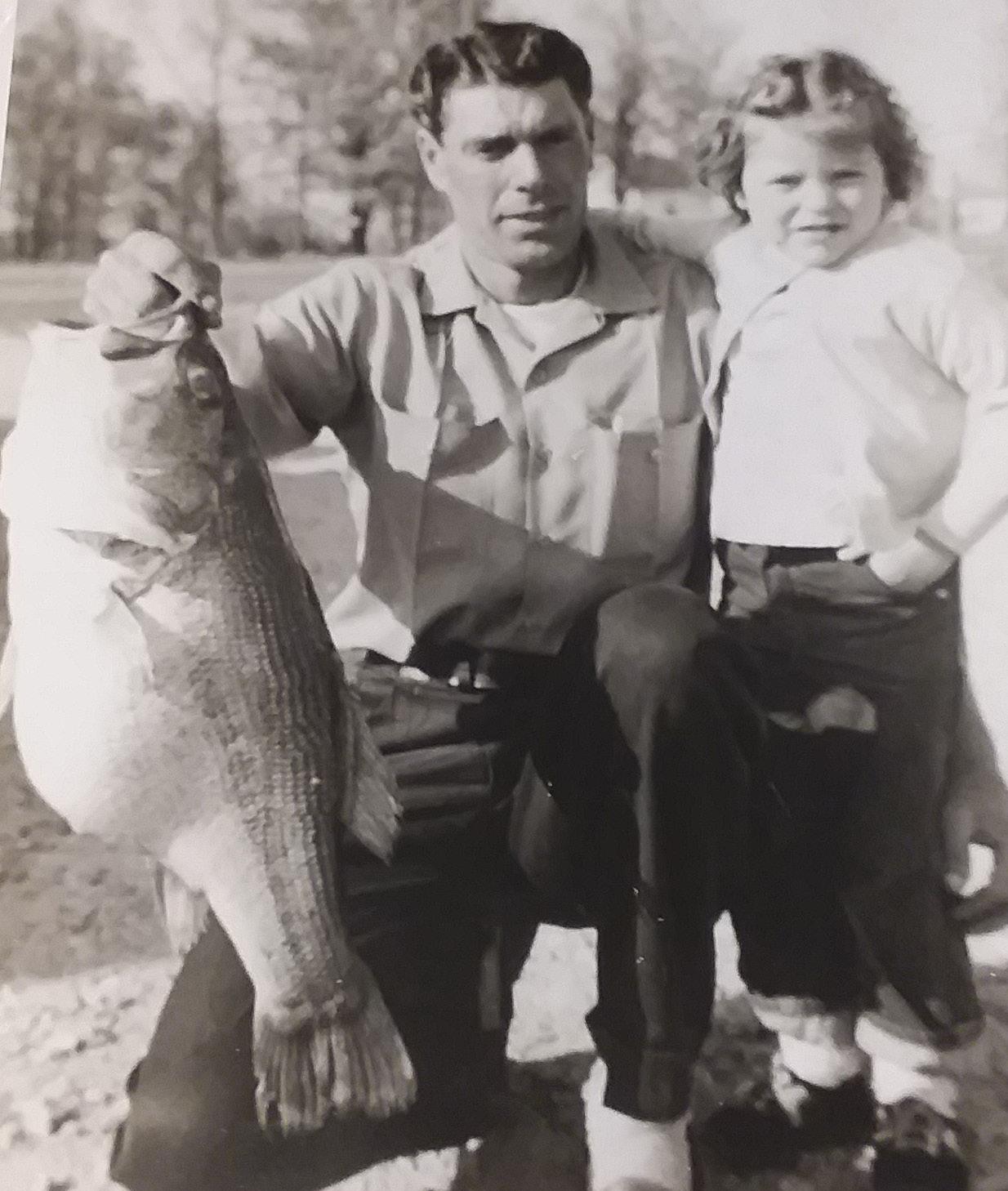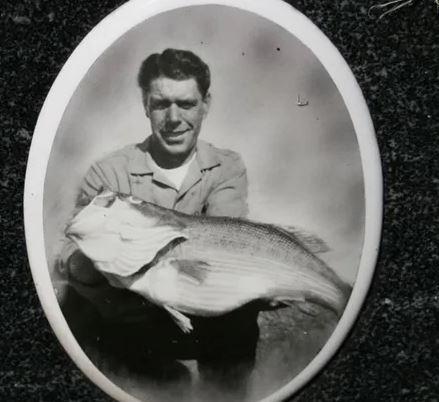
5 minute read
The Bushong Record Bass

Each spring, many Missouri bass fishers embark on a quest to catch their version of the Holy Grail – a state-record largemouth bass. But even the most optimistic of those fishermen know it’s a long-shot, at best.
Missouri’s state record of 13 pounds, 14 ounces, has withstood the test of time. Marvin Bushong caught that beast on April 21, 1961, on Bull Shoals Lake, and few fishermen have come close to threatening that mark since then.
Bushong’s amazing catch is the longest-standing poleand-line record in the Missouri books. It’s one of the oldest bass state records in the country. Only Georgia (1932), Michigan (1934), Wisconsin (1940), and South Carolina (1949) have longer-standing marks. So, you say you know where the next state record lives and that it’s only a matter of time before you’ll catch it? Well, good luck with that.
Bushong’s record bass has humbled many a fisher over the years. “I don’t think any of us figured dad’s record would last this long,” said Mike Bushong, Marvin’s son. “When he caught it, there were a lot of big bass in Bull Shoals. The next day, my dad’s friend went back to the same spot where dad caught his fish and got one that weighed 10 pounds. “But no one could break dad’s record then—and no one’s been able to do it since. Our family hopes it will last forever.”
(Left) Marvin Bushong's tombstone in Gainesville, Mo., includes a photo of him holding the state-record bass he caught at Bull Shoals Lake. (Photo: Courtesy of Lana Bushong)
(Right) Marvin Bushong posed with his 4-year-old daughter Lana and the Missouri state-record bass he caught in 1961. (Photo: Courtesy of Lana Bushong)
Lasting fame
Its incredible how long Bushong’s record could last so long in a state like Missouri. The Show-Me State is known nationally for its largemouth bass fishing, and it attracts an army of dedicated fishers each spring. Each spring, thousands of anglers flock to places such as Table Rock, Lake of the Ozarks, and Bull Shoals in hopes of catching a lunker. Plenty of big ones are reeled in. And with modern technology, the odds of catching a lunker are getting better. High-powered bass boats, advanced sonar fish- and depth-finders, and new-age rods and reels and lures are designed to hunt down and catch bass as never before. Compare that to Bushong’s days when he had a small boat and motor and rudimentary equipment.
However, he had some significant factors working in his favor. Bull Shoals was still relatively new at the time, and the Ozarks reservoir was in its “boom phase” for largemouth bass. New cover in the form of trees, bushes and vegetation were flooded, and bass thrived.
“When a reservoir is new, we see tremendous growth rates in our bass,” said Brian Canaday, chief of fisheries for the Missouri Department of Conservation. “That’s what we saw at Bull Shoals. There was a lot of big bass caught in the first 5 to 10 years of that reservoir’s existence.” Also, fishing pressure on Missouri’s reservoirs was nowhere near what it is today. The bass didn’t see as many lures.
Another factor playing a part in the longevity of Bushong’s record is that northern strain largemouths don’t get much bigger than the one he caught. While Florida strain bass that thrives in warm climates can grow to 15 pounds and occasionally bigger, their northern counterparts are limited by a shorter growing season.
Even back in those days, though, it took skill and dedication to catch big bass. “Dad was out on the water almost every day,” said Lana Bushong, Marvin’s daughter. “It seems like he always caught big fish.”
History replayed
On that fateful day in 1961, Marvin Bushong motored to one of his favorite spots in the Pontiac arm of Bull Shoals. He began casting his favorite lure, a black Helldiver spinnerbait, to the shoreline cover.On only his second cast, the giant bass rose and engulfed the bait. The fight lasted only 12 minutes, but it was filled with challenges.
At one point, Bushong’s reel came off the rod, and he struggled to wind in the fish without the leverage of the rod. But he got the big bass to the boat and encountered another problem. The net was too small for the bass. So Bushong reached down and grabbed the giant by its lip. Then he went around his hometown of Gainesville, Mo., playing show-and-tell.
“I remember being scared of that fish,” Lana Bushong said. “I was just four at the time and when my dad got down on his knee and posed for a picture with me and that bass, it looked almost as long as me.”
Marvin Bushong died in 1970 when he drowned after becoming entangled in a trotline on Bull Shoals. But his legacy lives on. “We don’t want people to forget what he accomplished,” Lana Bushong said. “Every once in a while, we’ll bring the mount of the bass to a tournament on the lake or have a little event. “We’re proud that dad is part of Missouri’s fishing history.”
Can the record be broken?
It’s not like Bushong’s record hasn’t been threatened over the years. In 1985, Jay Koran of Rockdale, Ill., caught a 13-pound, 5-ounce bass during a tournament at Truman Lake. And in 1998, two fishermen found a 13-pound, 15-ounce bass floating dead in a northwest-Missouri farm pond. Because they didn’t catch the bass on sporting tackle, it wasn’t eligible for a state record.
Those incidents proved that bass of state-record proportions, though extremely rare, are out there. The best chances for catching a monstrous bass may be an older reservoir such as Lake of the Ozarks, Table Rock or Bull Shoals, or a farm pond, where bass live in a fairly protected world.
“I’m quite confident that we’ll see the state record broken someday,” Canaday said. “Every once in a while, we’ll correspond with someone who sends us a picture of a huge bass they caught. They didn’t have that fish verified, so it didn’t qualify for a record. But it was very believable when they told us it weighed 11, 12 pounds on their hand-held scale. “Those bass are rare. But I think there are still some big ones out there.”
For more information on Missouri’s fishing state records, go to the website https://huntfish.mdc.mo.gov/fishing/ trophies-certificates/state-record-fish.
Brent Frazee








